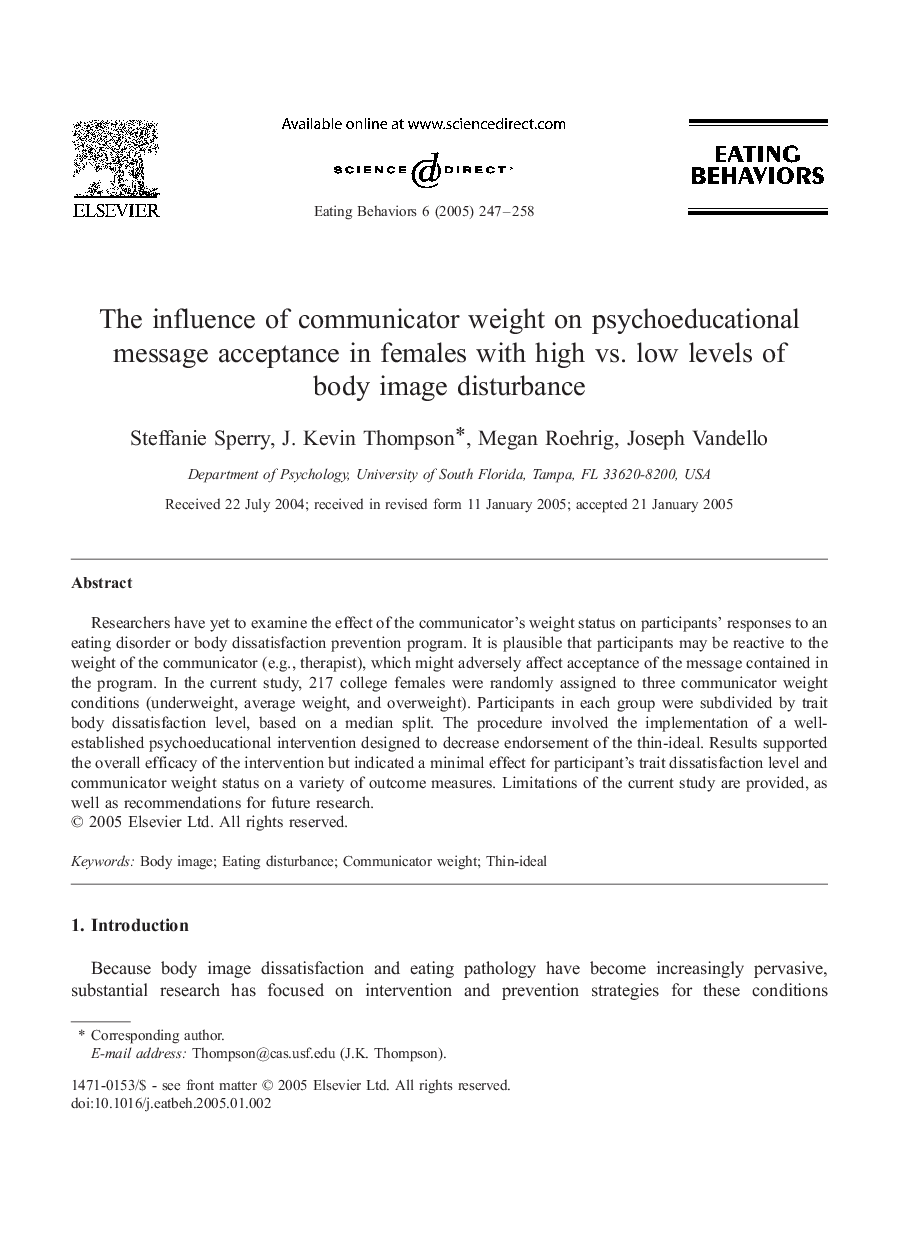| Article ID | Journal | Published Year | Pages | File Type |
|---|---|---|---|---|
| 10446906 | Eating Behaviors | 2005 | 12 Pages |
Abstract
Researchers have yet to examine the effect of the communicator's weight status on participants' responses to an eating disorder or body dissatisfaction prevention program. It is plausible that participants may be reactive to the weight of the communicator (e.g., therapist), which might adversely affect acceptance of the message contained in the program. In the current study, 217 college females were randomly assigned to three communicator weight conditions (underweight, average weight, and overweight). Participants in each group were subdivided by trait body dissatisfaction level, based on a median split. The procedure involved the implementation of a well-established psychoeducational intervention designed to decrease endorsement of the thin-ideal. Results supported the overall efficacy of the intervention but indicated a minimal effect for participant's trait dissatisfaction level and communicator weight status on a variety of outcome measures. Limitations of the current study are provided, as well as recommendations for future research.
Related Topics
Life Sciences
Neuroscience
Behavioral Neuroscience
Authors
Steffanie Sperry, J. Kevin Thompson, Megan Roehrig, Joseph Vandello,
